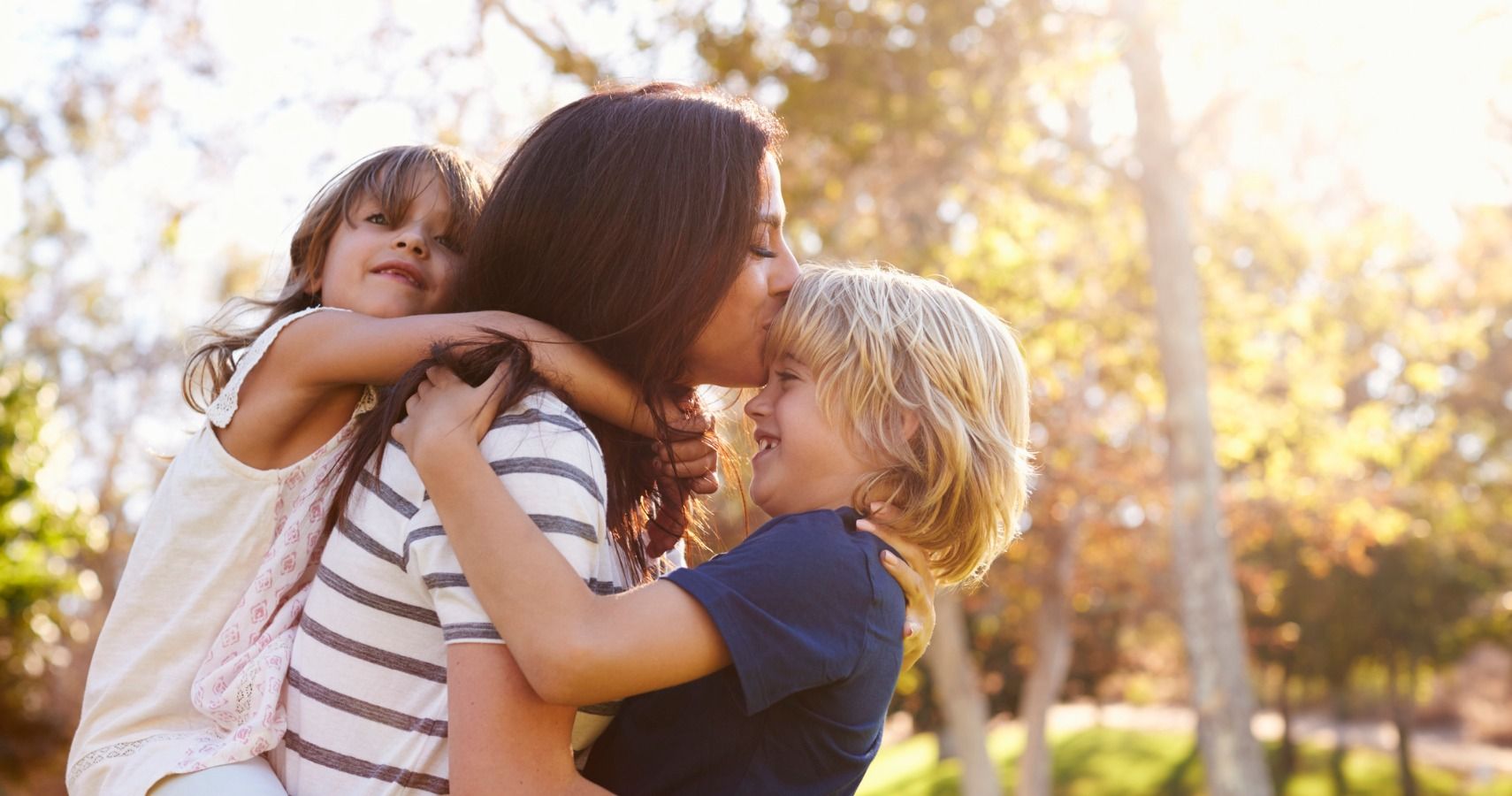Raising children is one of the hardest jobs in the world, and even harder when it involves a single parent. We're often told that children thrive the most in a house with two parents, but a new study is proving that single mothers are doing just as great a job raising their children than homes with two parents, and they often have a greater social support network than two-parent families.
Science Daily posted a report published in the European Society of Human Reproduction and Embryology that found "no differences in terms of parent-child relationship or child development" of children raised in a heterosexual two-parent household versus a single-mother-by-choice household. What may be surprising to some is that while the development of the child was no different in the two households, it was the single mothers who had a greater social support network, which is so important when raising children.
"Children in both family types are doing well in terms of their well-being," said investigator Mathilde Brewaeys from the Centre of Expertise on Gender Dysphoria of the VU University Medical Centre, Amsterdam. "Single-mothers-by-choice and their children benefit from a good social support network, and this should be emphasized in the counselling of women who want to have and raise a child without a partner."
According to the report, more and more women are choosing to have children without a partner involved, which has some people questioning their ability to fully provide for the child on their own. "The assumption that growing up in a family without a father is not good for the child is based mainly on research into children whose parents are divorced and who thus have experienced parental conflict," Brewaeys said.
"However, it seems likely that any negative influence on child development depends more on a troubled parent-child relationship and not on the absence of a father. Single-mothers-by-choice knowingly make the decision to raise their child alone, in contrast to unintended single mothers. Little research has been done on the specific features of these single-mothers-by-choice families and whether there are differences between them and heterosexual two-parent families in terms of parent-child relationship, parental social support and well-being of the children."
The study compared 69 single-mothers-by-choice to 59 mothers from heterosexual two-parent families. Both groups had children between the ages of 1 and a half and six years old, with researchers looking at the relationship between the mother and child, social network support and overall child's well being. The study found that the emotional involvement or parental stress was almost the same between the two groups as was the children's behavior and well being.
Where there was a difference was that the single mothers had more social support than their two-parent counterparts, but wanted more.
Brewaeys suggested that any woman looking into having a child on her own would benefit from having the support of family and friends. "A strong social network is of crucial importance," said Ms. Brewaeys. "So I would recommend that all women considering single motherhood by choice make sure of a strong social network -- brothers, sisters, parents, friends of neighbors. And to never be afraid to ask for help."
We're often told that children need two parents to be happy, but this study shows that single moms are definitely more than capable of providing a safe and happy home for their kids.
READ NEXT: 5 Common Challenges Of Being A Single Mom, And How To Overcome Them

